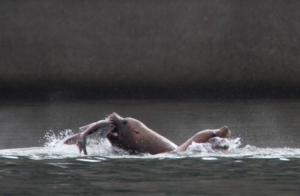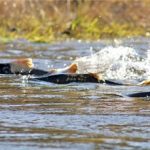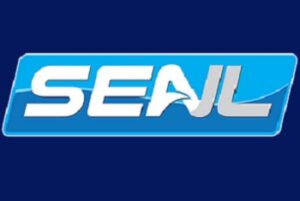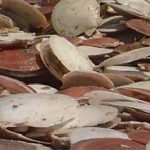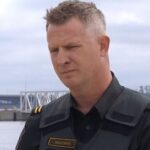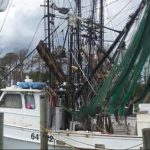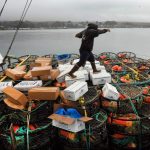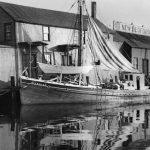Daily Archives: February 5, 2018
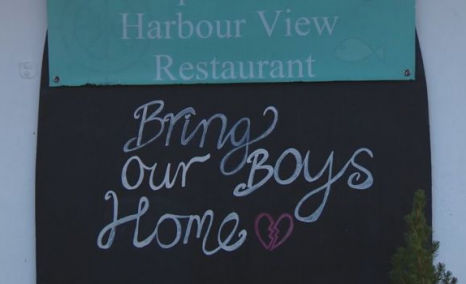
Seabed search in Loch Fyne for lost fishermen
Fresh efforts have been made to locate the bodies of two fishermen lost in a sinking on Loch Fyne. Their vessel, the Nancy Glen, sank on 18 January. One member of the crew was rescued by a passing boat but Przemek Krawczyk and Duncan MacDougall, who both lived in Tarbert, were lost. The Marine Accident Investigation Branch (MAIB) were surveying the site to decide if the wreck can be raised. A candle was lit for the lost men at a ceremony in Tarbert on Saturday. Elaine Whyte of the Clyde Fishermen’s Association said the situation had been hard on the families of the fishermen. >click to read< 22:20
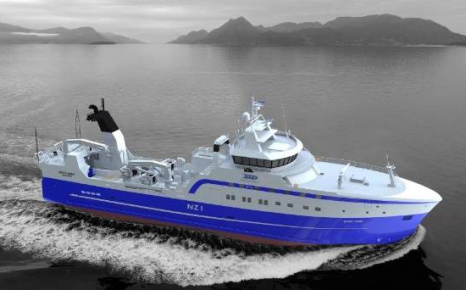
Fishing company eyes up Timaru workforce to crew new vessel
Competition for South Canterbury’s fishing expertise looks set to intensify, with national firm Sealord looking to Timaru to help staff its soon-to-be launched $70 million factory fishing vessel. Sealord public affairs and communications manager Julie North said the company expected to put its advanced new fishing trawler, which includes an highly-automated on-board fish factory, to sea in May. North said advertisements for crew to man the trawler, which would be based out of Nelson but would fish down both coasts of the South Island and as far south as the sub-Antarctic, had reached as far as Timaru. >click to read< 21:52
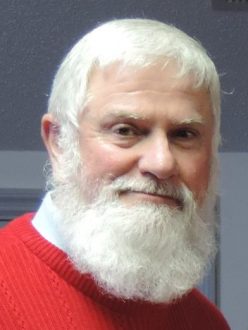
Commentary: Spread the blame for proposed license change
Jerry Schill, Director of Government Relations for the North Carolina Fisheries Association, offers a response to Russ Lay’s commentary “CCA, GOP to blame for proposed license change”>click to read< on the proposed changes to eligibility rules for commercial fishing licenses in North Carolina. Back in December 2016, the N.C. Marine Fisheries Commission sent a letter under the signature of Chairman Sammy Corbett to every member of the General Assembly requesting that they take a look at changes for commercial fishing licenses. >Click here to read the letter< To my knowledge, not one member of the General Assembly made any effort in 2017 to act on the MFC’s request. So where’s the boogeyman here, either Republican or Democrat? >click to read< 20:10
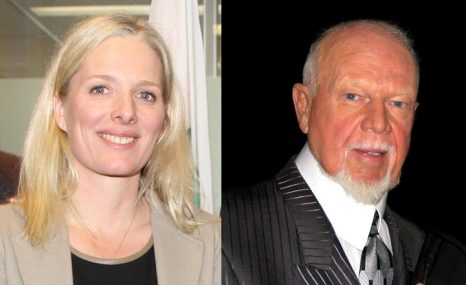
Canadian Environment Minister Predicts Ice Free Canada
Canadian Environment Minister Catherine McKenna has demanded climate skeptic Hockey commentator Don Cherry think about all the children who might one day not be able to play outdoors on the ice in Canada. Sunday, February 4, 2018, 6:16 PM – Known to many as the most outspoken man in sports, iconic Canadian commentator and television personality Don Cherry is once again facing criticism,,, Don Cherry calls people who believe in global warming ‘cuckaloos’ >click to read< 16:41 
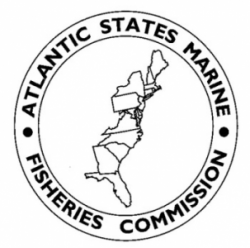
ASMFC Winter Meeting in Arlington, VA- February 6-8, 2018
Final Agenda >click to read<The agenda is subject to change. Bulleted items represent the anticipated major issues to be discussed or acted upon at the meeting. The final agenda will include additional items and may revise the bulleted items provided below. The agenda reflects the current estimate of time required for scheduled Board meetings.,, Board meeting proceedings will be broadcast daily via webinar >click here to listen< beginning February 6th at 9:30 a.m. and continuing daily www.asmfc.org/ 15:28
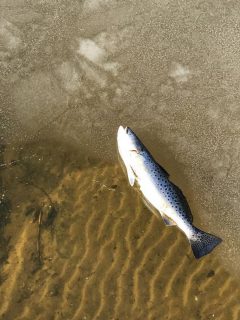
How cold was it in January? Bad enough to kill a lot of fish
The record-breaking freeze that hit eastern North Carolina the first week of January was so cold that it killed a massive number of fish in tidal creeks and estuaries along the coast. Hardest hit was the spotted seatrout, a fish especially popular with recreational anglers who, along with commercial fishermen, are now banned from fishing for them until the middle of June. The moratorium is meant to give surviving fish a chance to replenish by spawning this spring.,,, >click to read< 13:36
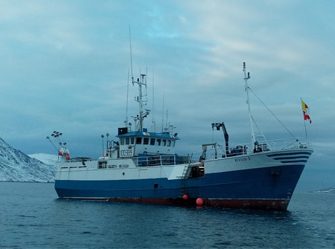
Northern fishing groups want help getting fair share of quotas
A coalition of Nunavut fishing companies has called for the creation of a federal fund to help the territory “catch up” and acquire a fair share of offshore shrimp and turbot quotas. Brian Burke, the president of the Nunavut Offshore Allocation Holders Association, said the territory’s fishing industry needs access to a more equitable share of its offshore resources. Even with a slight increase made to Nunavut’s turbot allocations last year, the territory holds 73 per cent of all turbot quotas and 38 per cent of shrimp—about 50 per cent of the overall allocation. >click to read<12:25
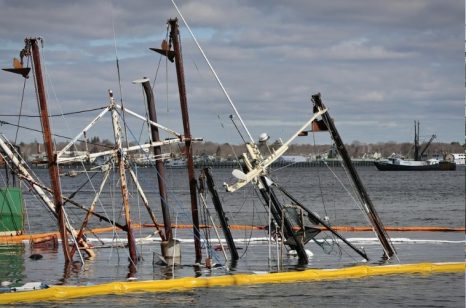
UPDATED: Two Carlos Rafael Vessels Sink Overnight in New Bedford Harbor – will remain submerged until at least Tuesday
Two Carlos Rafael vessels sank early Monday morning by Leonard’s Warf, according to Ed Anthes Washburn, the executive director of the Harbor Development Commission, Washburn said the fishing vessels the Dinah Jane and the Nemesis sunk at around 1:30 am with no one on board. The vessels were tied to each other. Crews from the Coast Guard and the HDC are on site now investigating the incident. The Massachusetts Environmental Police seized 120 pounds of scallops off the Dinah Jane last week. Story will be updated. >Link< 11:24
Two vessels will remain submerged until at least Tuesday – >click to read the updated story< 14:05
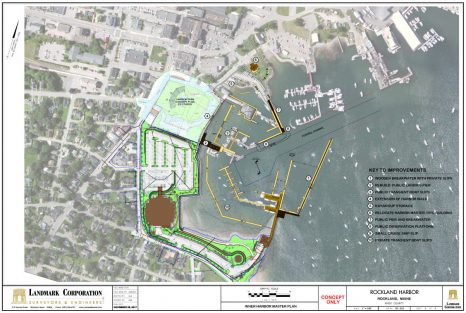
Growing dissent to private marina project is deja vu for Rockland
There is growing opposition to a long-term plan by Yachting Solutions to extending its private pier which would bisect a heavily-used channel and force the relocation of 54 moorings The opposition to the plan is reminiscent to a grass-roots movement that twice blossomed to stop a proposal by the Samoset Resort for construction of a lengthy private pier that would have run parallel to the Rockland Breakwater.,, The first effort came in 2000 when the resort proposed an 850-foot long pier about 200 feet inside the Breakwater to serve up to 40 boats. The project immediately faced opposition from lobstermen, schooner captains, and citizens. A group named “Save the Breakwater” formed to oppose the project. >click to read<10:41
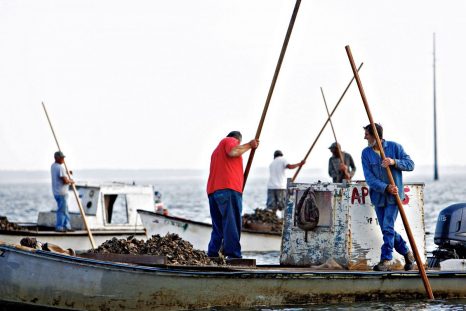
Six years after the oyster industry in Apalachicola Bay collapsed, scientists still don’t agree on what happened.
When Robert Livingston studied Florida’s Apalachicola Bay and River in the 1970s, he marveled at the ecosystem’s health. The bay produced a rich bounty of oysters, shrimp, fish, and crabs. Those animals, in turn, supported a thriving fishing community and seafood industry. But since then, the bay has declined. During a 2012 drought, the oyster fishery collapsed—and has not recovered. In the past, the ecosystem “was like a symphony orchestra,” says Livingston, an aquatic ecologist at Florida State University in Tallahassee. “Now it is not. It is dysfunctional.” >click to read< 09:35
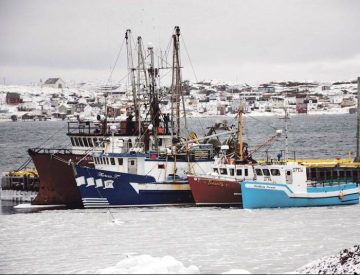
Letter: Fishery corporations kick messaging into high gear
As is evidenced from two recent articles in The Telegram (the letter, Jan. 23 “We need to enhance Atlantic Canada’s fisheries” and the Jan. 26 editorial “Fisheries madness”), the corporate-owned processing and offshore sector is in full fear-mongering and misrepresentation mode. Faced with a minister of Fisheries and Oceans who is willing to speak the truth about the challenges to the inshore fishery, the corporations that have aggressively endeavoured to shape the economics of this fishery for the past 20 years are now being told to play by the rules and they are enraged at the prospect.>click to read< 08:51

































